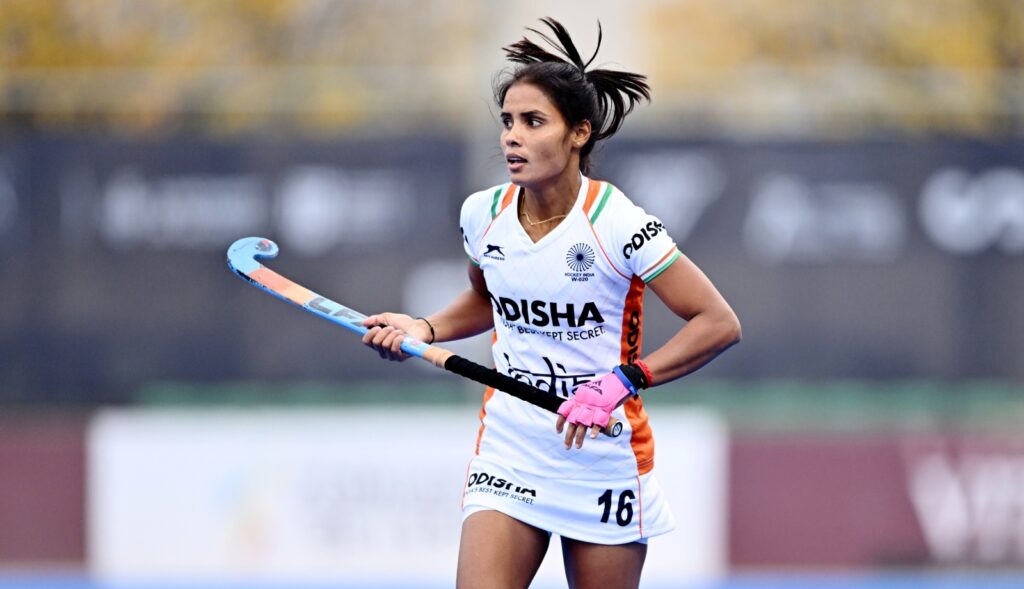
Born in the humble lanes of Roshanabad, a remote village in Uttarakhand, Vandana Kataria’s journey to becoming one of India’s most celebrated hockey players is one of perseverance and determination. From learning the sport in a remote village to making history as the first woman to score a hat-trick at the Tokyo Olympics, from facing casteist slurs and societal challenges to earning 320 international caps, most by an Indian women’s hockey player—Vandana defied the odds.
After an illustrious career, three days ago, Vandana decided to announce her retirement—a decision that was not easy for her to take
“I took this decision with a heavy heart, I was so emotional when I made the announcement. It’s sad that I won’t be a part of the team that I have considered my family for the last 10-15 years. I didn’t talk to a lot of people while making the decision, I knew my teammates would convince me to stay. I told my best friend Sushila (Chanu) and Savita (Punia) that I was considering retiring, and when I made up my mind I went up to the team and let them know I had made the decision.”
Going back to her debut in 2009, after a stellar run in the Junior Hockey team, Vandana shared that the goosebumps she felt wearing the India jersey for the first time were unlike anything she’s experienced since.
“I always feel nervous before a match, but what I felt on my debut — I’ve never felt that again. It was something special. Especially now, when I look back at where I started, all I wanted was to give it my 100%.”
Vandana’s journey is one that was filled with obstacles, rising from the shackles of poverty and societal stigma, the former Indian captain fought her way up. From wondering where her next meal would come from to becoming India’s most celebrated women’s hockey player.
“First, I want to thank my well-wishers — and even those who weren’t. Because of all the love I’ve received over the years, I can now live comfortably without worrying about my next meal. Kam se kam ab aaram se reh sakte hain, do roti teen time kha sakte hain. There was a time when, if we got one meal a day, we didn’t know when the next one would come.”
Throughout her career, Vandana’s strongest pillar has been her father, who unfortunately passed away ahead of the Tokyo games, where Vandana delivered her career defining performance.
“My father did everything he could to support me, but people in the village always had something to say about me playing hockey. ‘She’s a girl, don’t let her play sports’—he’d hear that often. My sisters played hockey too, and my father was constantly taunted by the villagers: ‘Don’t let them wear shorts,’ ‘Don’t let your daughters go out.’
But after Tokyo, everything changed. Today, our village has its own hockey turf. And whenever I go back, the same people now call me meri beti—my daughter. Things have changed for the better. Thoda upar uthte hain, to pyaar apne aap aata hai (When you rise, love starts to follow).”
In 2021, two men from Vandana’s village, Vijay Pal and Sumit Chauhan, hurled casteist slurs outside of her family home when she was in Tokyo. Interestingly, one of the men had played hockey with Vandana in her early days. When asked about the incident and how she handled it mentally, Vandana replied
“I don’t like to talk about it too much—it’s very difficult for me. I don’t want to recall it. But that wasn’t the only hurdle I faced during the Tokyo Olympics. There was Covid, and we were struggling with quarantines. We would practice inside our rooms. I had an injury—my ankle was fractured. I tested positive for Covid. And just a month before the Games, I lost my father. I didn’t know how to deal with all of it,” she said.
“But the team had worked so hard. There’s so much that goes into reaching the Olympics that when you look back on your journey, you find a new sense of motivation—through all the hard work and sacrifices. I couldn’t even attend my father’s last rites, and I had to make it all worth it.”
“My team was my backbone during that time. They never left me alone. I had to do it for them too.”
When asked what message she had for young girls facing adversity and fighting silent battles, she said—
“Don’t lose to yourself (apne aap se mat harna). People will always have things to say—both good and bad. But use your struggles as your strength. Keep working hard. Stay disciplined.”



